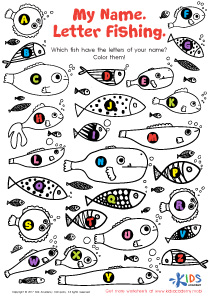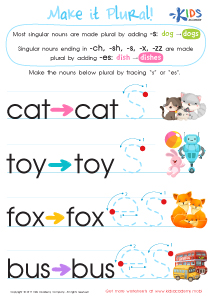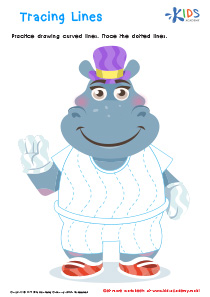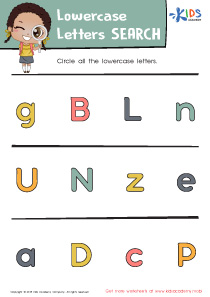Vocabulary expansion Easy Alphabet Worksheets for Ages 4-5
4 filtered results
-
From - To
Unlock your child's language potential with our "Vocabulary Expansion Easy Alphabet Worksheets for Ages 4-5"! Designed to make learning fun, these engaging printables help young learners build a strong vocabulary foundation by connecting letters with new words. Each activity is crafted to promote letter recognition, phonemic awareness, and word association, ensuring children are well-prepared for reading success. Perfect for early learners, our colorful worksheets captivate attention and make practicing enjoyable. Start your child's educational journey with these easy, effective tools and watch their vocabulary grow every day!
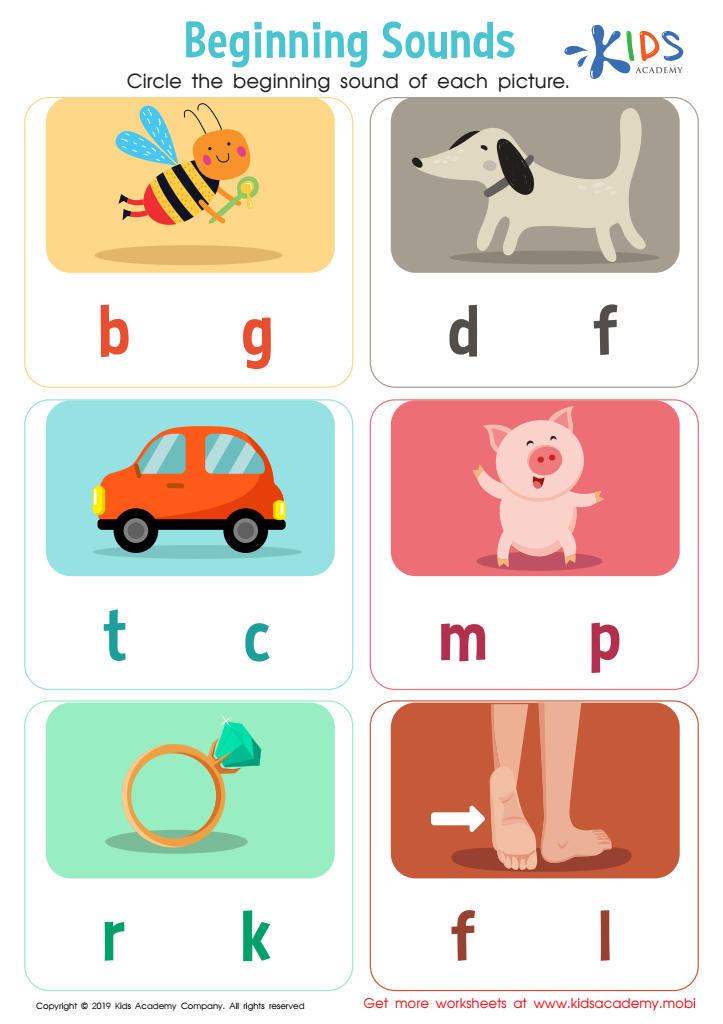

Beginning Sounds Worksheet
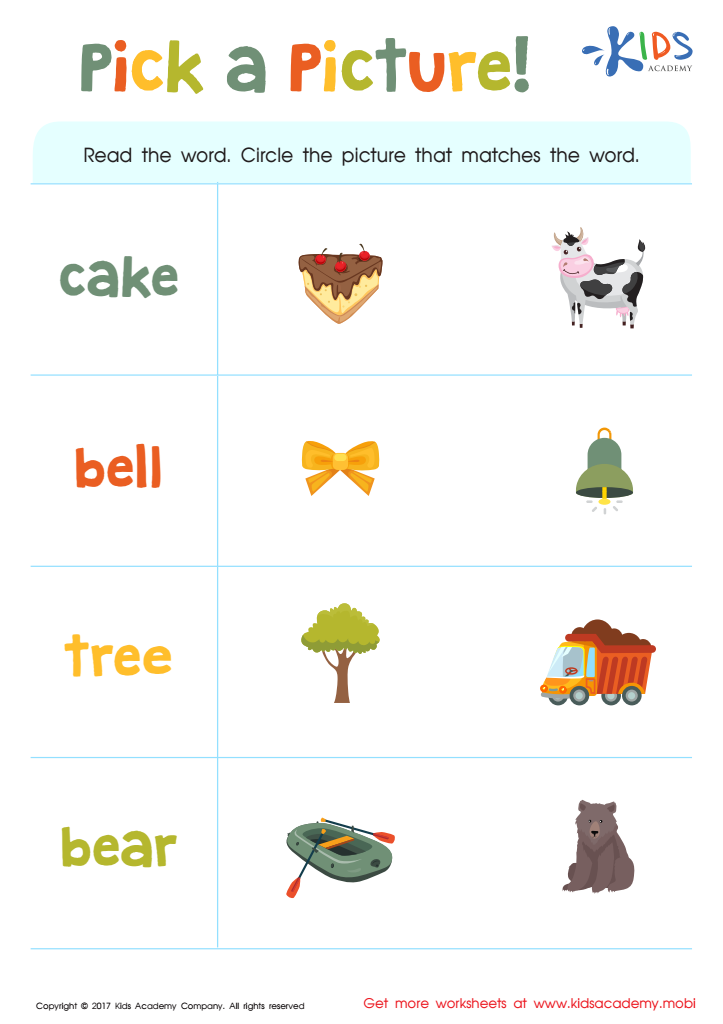

Pick a Picture Word Recognition Worksheet
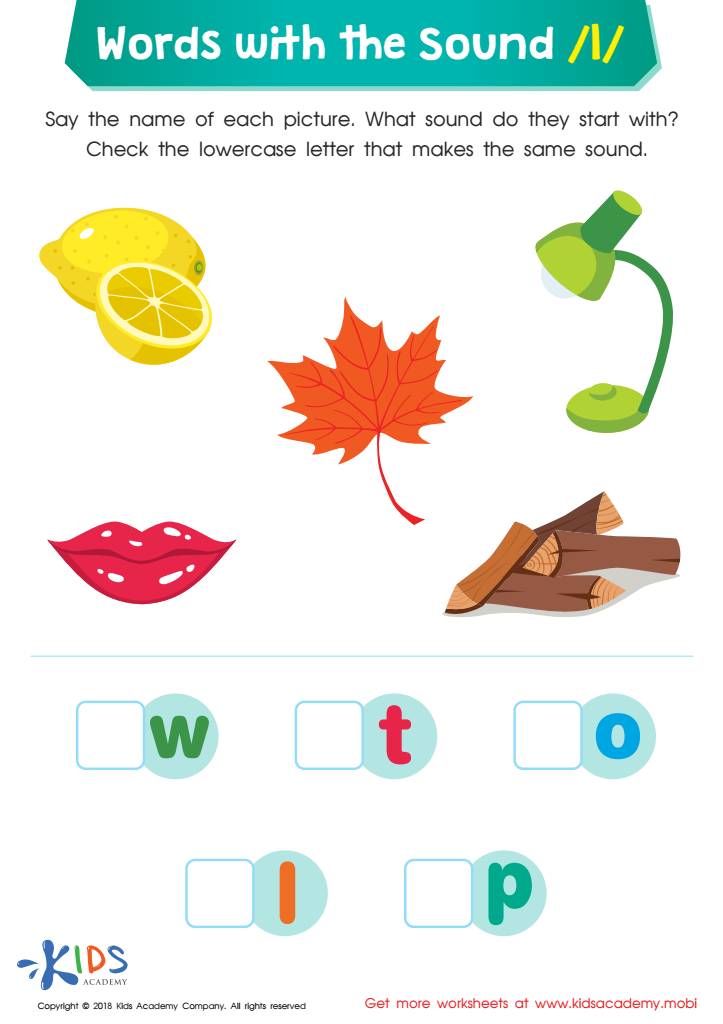

Words with Sound L Reading Worksheet
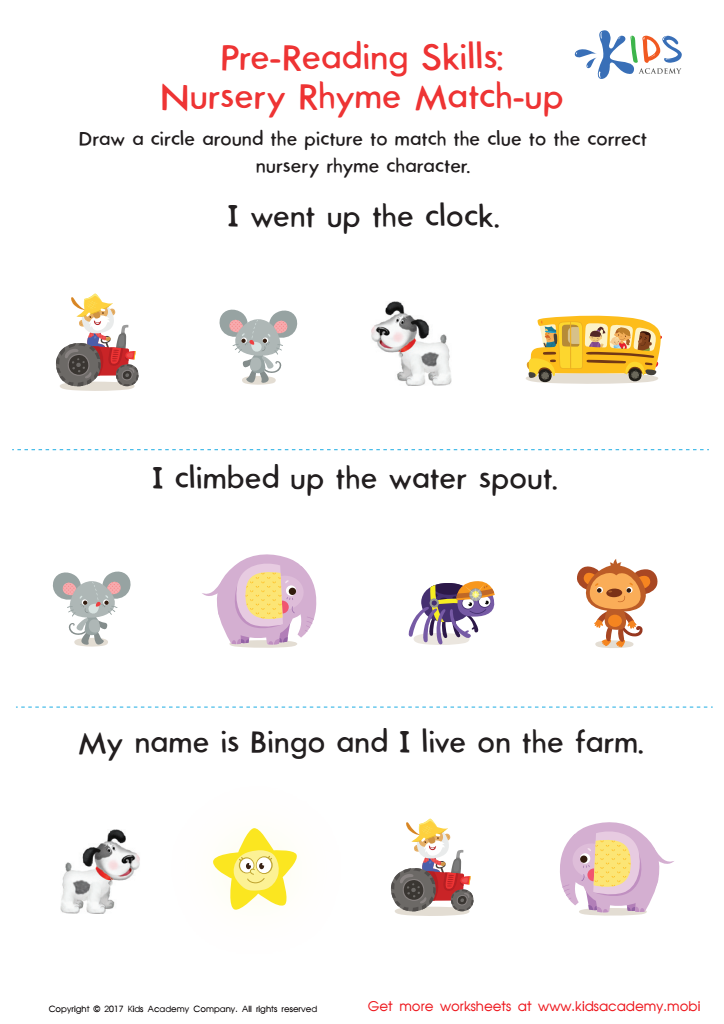

Nursery Rhyme Match–Up Worksheet
Parents and teachers should prioritize vocabulary expansion for children ages 4-5, as it forms a critical foundation for future academic and social success. At this age, children's brains are particularly receptive to new information, making it an ideal time to introduce a rich and diverse vocabulary. Easy Alphabet activities that integrate playful learning can enhance this development effectively.
A robust vocabulary paves the way for better reading comprehension, helping children decode new text and understand stories in greater depth. It accelerates early literacy skills, making the transition to reading smoother and more enjoyable. Additionally, a broader vocabulary enhances communication abilities, allowing children to express their thoughts, feelings, and needs more clearly, thereby improving social interactions and emotional intelligence.
Furthermore, rich vocabulary exposure can boost cognitive skills, such as memory, problem-solving, and critical thinking. When children are equipped with a wide array of words, they better understand their environment and articulate observations and questions, fostering a deeper curiosity and enthusiasm for learning.
Incorporating vocabulary expansion through Easy Alphabet activities ensures these young learners receive essential stimulation in both fun and educational contexts. This balanced approach fosters long-term benefits, setting a strong educational foundation and cultivating a lifelong love of learning and communication.
 Assign to My Students
Assign to My Students











